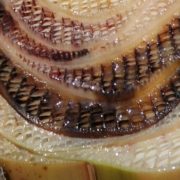
Fighting Fusarium wilt to beat the bananapocalypse
GPC Blog Dr. Sarah Schmidt (@BananarootsBlog), Researcher and Science Communicator at The Sainsbury Laboratory Science. Sarah got hooked on both banana research and science writing when she joined a banana Fusarium wilt field trip in Indonesia as a Fusarium expert. She began blogging at https://bananaroots.wordpress.com and…

How to Review a Manuscript, from MBoC
Careers, Careers - Blog, Skills and Advice, Writing/Reviewing/Publishing/Communicating0 Comments
/
A 2011 editorial from the journal Molecular Biology of the Cell (MBoC).
Any jackass can trash a manuscript, but it takes good scholarship to create one (how MBoC promotes civil and constructive peer review)
http://www.molbiolcell.org/content/22/5/525.long
Key points:
Review a manuscript only…
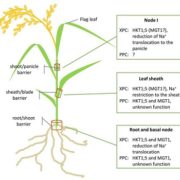
Commentary: Salt Tolerance in Crops: Not Only a Matter of Gene Regulation
Blog, Plant Physiology, Plant Physiology: Updates, Research, Research BlogBy Elide Formentin
Rice (Oryza sativa), the primary source of calories for more than 2 billion people, is the most sensitive of all cereal crops to soil salinity, which affects more than 20% of irrigated arable land (FAO and ITPS, 2015). Rice paddies are mainly located at the delta of rivers, where…
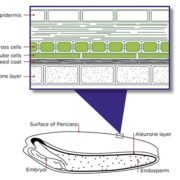
Letter to the Editor: Does C4 Photosynthesis Occur in Wheat Seeds?
Blog, Plant Physiology, Plant Physiology: Updates, Research, Research BlogBy Robert J. Henry, Parimalan Rangan, Agnelo Furtado, Florian A. Busch, Graham D. Farquhar
Does C4 photosynthesis occur in seeds? A nice set of of arguments for and against, as Letters to Editor.
Read more ... http://www.plantphysiol.org/content/174/4/1992

My experiences as a PlantingScience mentor
Blog, Careers, Careers - Blog, Careers in Plant Science, Education, Middle & High School, Organizations, ResourcesPlantingScience is an online mentoring program that virtually connects scientists with junior high or high school students as they participate in inquiry-based activities with plants. Mentors commit to an hour or so per week over roughly two to four weeks, during which they respond to student questions…
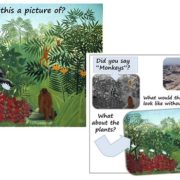
Plant blindness and the implications for plant conservation
Blog, Plant Science Research Weekly, Research, Research BlogPlant Blindness negatively affects plant conservation, despite plants being a majority on the endangered species list. Balding and Williams review the research on plant blindness and argue that it isn’t inevitable. There are cultures in the world more keenly aware of plants than most in western societies…
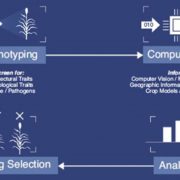
High throughput phenotyping to accelerate crop breeding and monitoring of diseases in the field ($)
Blog, Plant Science Research Weekly, Research, Research BlogHigh throughput phenotyping (HTP) is a frontier in plant biology. Shakoor et al. review the state of HTP and various levels of implementation, current limitations, and the new horizons for the field. Envirotyping – getting all the information possible from an individual plant in a field to fully understand…
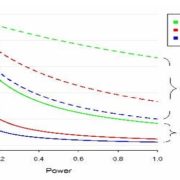
Redefine statistical significance
Blog, Plant Science Research Weekly, Research, Research BlogWith data generation, high false positive rates, and inability to reproduce findings all on the rise in science, Benjamin et al. propose lowering the standard threshold of the p-value to 0.005. The p < 0.05 standard would be termed “suggestive” under this scheme. Some of the caveats are that this…

7000 botanists together at the 6-yearly Congress #IBC2017
Blog, Plant Science Research Weekly, Research, Research BlogThe International Botanical Congress was held in Shenzhen, China (#IBC2017) last week. The AoB Blog published several blog posts and tweet collections from the conference. The Congress also voted on The Shenzhen Declaration on Plant Science designed to unite plant scientists around several priorities…

